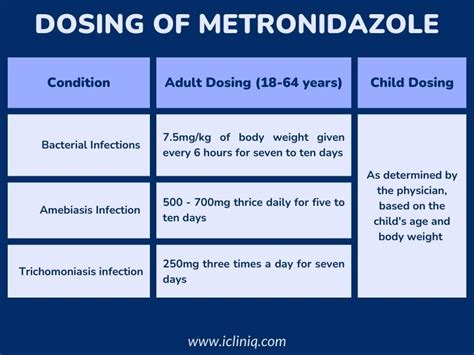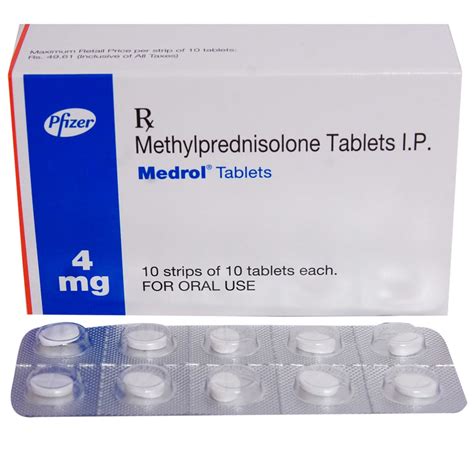What Are Metronidazole Used For

Metronidazole, also known by its brand name Flagyl, is a versatile antibiotic and antiprotozoal medication that has been widely used for decades to treat various infections and conditions. This medication operates by interfering with the DNA of microbial cells, thereby inhibiting their ability to reproduce and ultimately leading to their death. The uses of metronidazole are diverse, reflecting its broad spectrum of activity against both bacterial and protozoal pathogens.
Bacterial Infections
- Abdominal Infections: Metronidazole is effective against infections in the abdominal area, such as peritonitis (inflammation of the lining of the abdominal cavity) and abscesses, often in combination with other antibiotics to cover a broader range of potential pathogens.
- Skin and Soft Tissue Infections: It is used for the treatment of skin and soft tissue infections caused by susceptible organisms, including those caused by Bacteroides and Fusobacterium species.
- Central Nervous System Infections: Metronidazole can be used in the treatment of brain abscesses, especially when caused by anaerobic bacteria.
- Bone and Joint Infections: Osteomyelitis (bone infection) and septic arthritis (joint infection) caused by susceptible anaerobic bacteria can be treated with metronidazole.
Protozoal Infections
- Giardiasis: This medication is highly effective against Giardia lamblia, a common cause of intestinal infections (giardiasis) worldwide.
- Amebiasis: Metronidazole is the primary treatment for amoebic dysentery and liver abscess caused by Entamoeba histolytica.
- Trichomoniasis: It is used to treat infections caused by Trichomonas vaginalis, a sexually transmitted parasite that causes trichomoniasis.
- Other Protozoal Infections: Metronidazole may be used for other less common protozoal infections, depending on susceptibility patterns and clinical guidelines.
Dental and Oral Infections
Metronidazole is often used in combination with other antibiotics to treat dental infections such as periodontal disease (gum disease) and dental abscesses that involve anaerobic bacteria.
Helicobacter pylori Infection
Metronidazole can be part of a regimen to eradicate H. pylori bacteria, which are associated with peptic ulcers and gastritis, though resistance patterns may limit its effectiveness in some areas.
Usage Considerations
While metronidazole is a valuable antibiotic, its use must be judicious and based on current guidelines and susceptibility patterns. The development of resistance, potential side effects (such as gastrointestinal upset, metallic taste, and neurological effects), and interactions with other medications (e.g., alcohol and warfarin) necessitate careful consideration before prescription. Furthermore, metronidazole should be used during pregnancy only when clearly needed, as it crosses the placental barrier and could potentially affect the fetus.
In conclusion, metronidazole plays a crucial role in treating a wide array of bacterial and protozoal infections, reflecting its broad-spectrum activity. Its efficacy, however, must be balanced against the potential for resistance and side effects, necessitating prudent use in clinical practice.
What is the most common use of metronidazole?
+Metronidazole is commonly used to treat infections caused by anaerobic bacteria and protozoa, including bacterial vaginosis, pelvic inflammatory disease, and amoebiasis.
Can metronidazole be used to treat viral infections?
+No, metronidazole is specifically designed to treat bacterial and protozoal infections. It is not effective against viral infections.
Are there any known interactions between metronidazole and other medications?
+Yes, metronidazole can interact with certain medications, including warfarin and alcohol, which may increase the risk of side effects. It's essential to inform your healthcare provider about all medications you're taking before starting metronidazole.
The applications of metronidazole underscore the importance of having a diverse array of antimicrobial agents available to combat a broad spectrum of pathogens. As resistance to antibiotics continues to grow, the value of metronidazole and similar medications only increases, making their judicious use crucial for both current and future therapeutic success.


